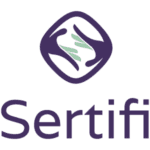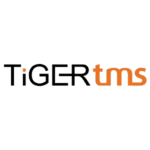 The modern workforce has witnessed considerable changes in recent years, with economic shifts and the evolution of work culture around the pandemic bringing employee well-being and mental health to the forefront. This new focus highlights the critical need to ensure the health and happiness of employees at all times, especially through their benefits programs.
The modern workforce has witnessed considerable changes in recent years, with economic shifts and the evolution of work culture around the pandemic bringing employee well-being and mental health to the forefront. This new focus highlights the critical need to ensure the health and happiness of employees at all times, especially through their benefits programs.
However, this shift in workplace dynamics with the arrival of Gen Z employees brings a whole new challenge for employers in how to effectively convey the importance of the benefits available.
The distinct expectations and fluctuating attention spans of this generation require innovative strategies to ensure they are empowered with the knowledge to make the best decisions regarding their health and careers.
Why are Gen Z employees different from previous generations?
Generation Z represents individuals born from the mid-1990s to the early 2010s and are gradually becoming a significant part of the global workforce. This generation has been raised in a world that is very different from its predecessors.
Digital natives
For Gen Z, the internet and smartphones have been integral parts of life since day one. This early immersion has shaped them into a generation that effortlessly embraces technology, using digital platforms seamlessly for social bonding and education.
Value-driven
More than any previous generation, Gen Z employees are driven by their values. They seek employers whose corporate social responsibility efforts align with their own beliefs on environmental sustainability, social justice, and diversity and inclusion.
Seekers of stability
Gen Z individuals have been shaped by economic recessions and global unrest. Because of this, they value stability and financial security. However, their outlook on stability is different than conventional expectations. It involves developing the necessary skills and having the flexibility to pivot in response to the dynamic changes of the modern job market when needed.
Mental health advocates
Unlike their predecessors, Gen Z is notably vocal about mental health matters, and more detailed discussions about well-being are being expected in workplaces. Gen Z places significant emphasis on mental wellness and anticipates employers to provide comprehensive mental health support within their benefits offerings.
Why are employee benefits something worth training on
Here’s a closer look at why training on employment benefits can be invaluable for organizations:
Significance in life and career
Benefits hold profound significance in an individual’s life and career journey, helping to balance their health, financial well-being, personal development, and overall job satisfaction.
For many individuals, the perceived value of a well-rounded benefits package often surpasses the attractiveness of a larger paycheck. Employee benefits not only offer reassurance regarding personal and family health but also assist career progression with access to different professional development training programs.
Long-term advantages for employees and employers
For Employees: Providing training to help employees understand and maximize their employee benefits can result in wiser decisions regarding health plans, financial opportunities, and professional growth avenues. This empowerment enables individuals to harness the full potential of available resources, elevating their overall well-being and job fulfillment.
For Employers: Employees who are well-versed in their benefits are more inclined to value them, leading to higher engagement and loyalty levels in the organization. This informed approach can create a culture centered around health and well-being, helping to lower healthcare expenses and minimize absenteeism.
What kinds of benefits appeal to many Gen Z employees?
Understanding what kind of benefits are likely to attract Gen Z employees can help organizations better cater to their needs. Below are some options to consider:
- Work Schedule Flexibility: For a lot of Gen Z professionals, striking a balance between work and personal life is key, and they value highly the chance to dictate their own work hours. This could include possibilities such as remote work, adaptable scheduling, and paid time off for familial duties or personal situations.
- Paths for Career Growth: Gen Z workers are driven by ambition and actively seek out opportunities for career advancement. They are eager to continuously acquire new skills to propel their careers forward. Employers can effectively engage and retain these employees by providing training initiatives, mentorship opportunities, and transparent career pathways.
- Better Healthcare: Healthcare has become a considerable expense for many individuals, especially for younger people entering the workforce. Gen Z employees look for benefits that take into consideration various types of health conditions – both physical and psychological. This means companies that, along with traditional benefits offerings like vision, dental, and health, should also explore holistic options that include provisions for mental health assistance.
How to communicate benefit programs effectively
Embracing technology and social media and ensuring organizational transparency are key strategies for engaging a younger workforce. Below are some ways organizations can adapt their communication and training strategies to meet the needs and expectations of Gen Z employees.
Understanding Gen Z’s communication preferences
Gen Z individuals appreciate quick, visual, and interactive forms of communication. They are accustomed to receiving information in real time and value authenticity and directness.
For them, traditional emails and printed brochures are less appealing compared to dynamic and interactive digital content. Recognizing these preferences is the first step in effectively communicating benefit programs to them.
Using technology and social media to relay information
Utilizing technology and social media platforms can greatly enhance the efficiency of conveying benefits information. Producing concise, engaging videos to illustrate various benefits, conducting live Q&A sessions via social media, and employing chatbots for immediate responses are inventive approaches to grab their interest.
These strategies not only resonate with their digital tendencies but also help guarantee accessibility to information at any time and from anywhere.
Importance of transparency and authenticity
For Gen Z, honesty and genuineness hold immense importance. When talking about benefit programs, it’s vital to offer transparent details about what’s being provided and why. Avoiding complex corporate language and communicating information directly helps build trust. Testimonials from staff members who’ve actually benefited from these programs can help add to the authenticity and make it more relatable.
Effective benefits training strategies
1. Incorporating interactive and experiential learning methods
Interactive and experiential learning methods resonate well with Gen Z. Using gamification elements in training programs or simulations that allow them to explore different benefits in a virtual environment can make learning more engaging. Interactive quizzes and polls during training sessions also encourage participation and retention of information.
2. Personalizing training programs to fit Gen Z’s needs
Gen Z individuals thrive on personalization. Offering flexible training programs that allow them to explore benefits pertinent to their unique personal and professional growth objectives can help increase engagement levels. Leveraging data analytics to better understand those preferences and customize content accordingly can also optimize the efficiency of the training.
3. Encouraging feedback and continuous improvement
Establishing channels for transparent feedback and involving Gen Z employees in the continuous enhancement of benefit programs is critical.
By inviting them to express their thoughts and recommendations, you not only build a sense of belonging in the organization but also gain invaluable insights for fine-tuning communication strategies. Instituting a feedback mechanism where their feedback directly influences new adjustments showcases the importance placed on valuing and acknowledging their perspectives.
Maximize benefit usage for every employee
Implementing effective benefits training strategies is essential to ensure that all employees, including Gen Z, understand and make the most of their benefits. Offering engaging and customized learning opportunities, alongside creating a positive culture of feedback and continual improvement, can greatly improve employee satisfaction and information retention.
Remember, happy and well-informed employees tend to be more productive and contribute positively to the organization’s overall success, so it’s important to put the time and energy necessary into improving your training approach.
About the author
Frank Mengert continues to find success by spotting opportunities where others see nothing. As the founder and CEO of ebm, a leading provider of employee benefits solutions. Frank has built the business by bridging the gap between insurance and technology driven solutions for brokers, consultants, carriers, and employers nationwide.



















